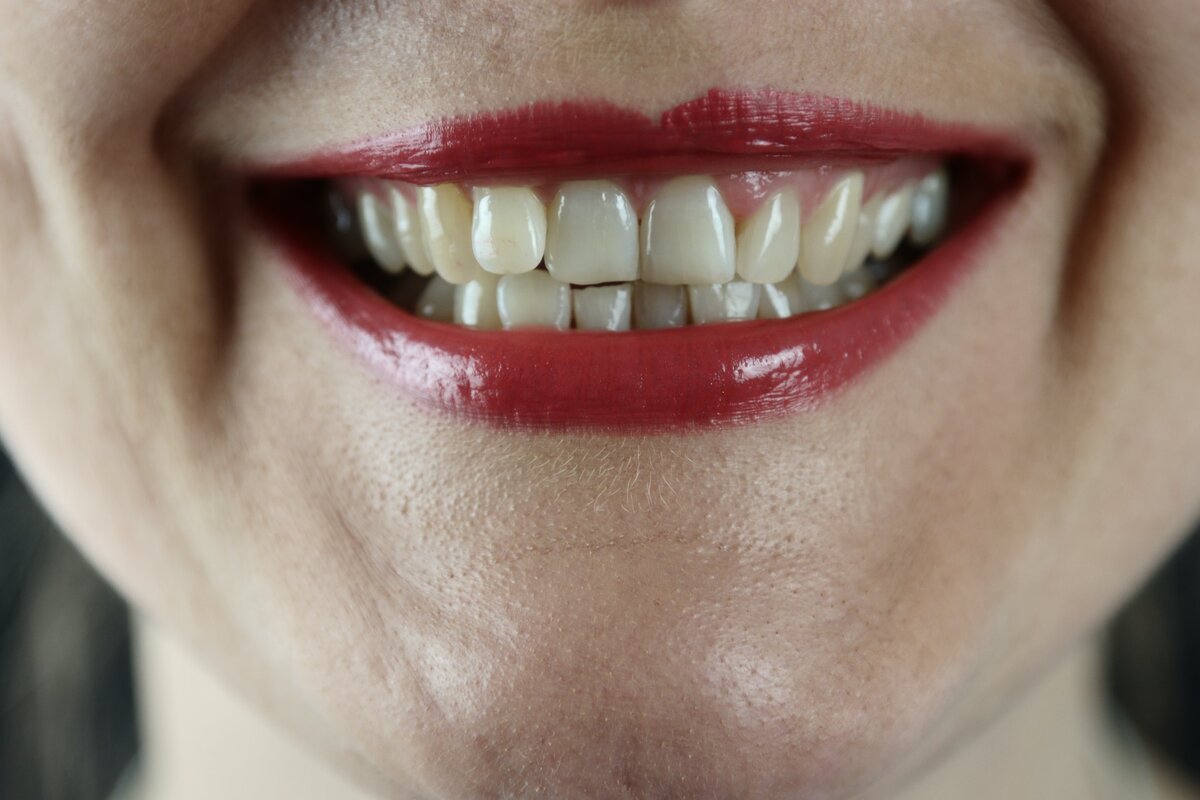Pregnancy brings a whirlwind of changes to your body, and your dental health is no exception. Essential minerals like calcium play a critical role in supporting both your and your baby’s well-being. However, the increased demands of pregnancy can sometimes lead to calcium deficiency, potentially affecting the strength and health of your teeth. Let’s delve into the importance of calcium for maintaining dental health during pregnancy and how to ensure you’re getting enough for both of you.
On this page:
Understanding Calcium Deficiency: Pregnancy Teeth Health Insights
Calcium is essential during pregnancy, not just for building strong bones but also for your dental health. It’s a key player in developing your baby’s skeleton and teeth and supports your nervous, muscular, and circulatory systems. When you’re pregnant, your body provides calcium to your baby, which can reduce your own calcium stores.
Your teeth might also feel the impact of these changes, leading to a calcium deficiency pregnancy teeth issue. They require calcium to maintain their structure and strength. A deficiency can lead to dental problems such as tooth decay and gum disease. Saliva helps protect your teeth from decay, and it needs calcium to do its job right.

But here’s the thing: your body does not make calcium. You need to get it from the foods you eat or from supplements. If you don’t get enough, your body will take it from your bones and teeth, which might weaken them. This is why a balanced diet rich in calcium is vital during pregnancy. It’s like giving your body and your baby the building blocks needed to stay strong.
Your dental health is connected to your overall health. Problems with your teeth and gums can affect your pregnancy and even your baby’s health. So, it’s not just about having a nice smile; it’s about keeping both you and your baby healthy.
Addressing Calcium Deficiency Teeth Issues During Pregnancy
Pregnancy can be tough on your teeth and gums. Hormonal changes may make your mouth more vulnerable to bacteria and plaque, leading to dental concerns like gingivitis and decay. Gingivitis, a mild form of gum disease, is particularly common and can cause red, swollen, and tender gums that may bleed during brushing or flossing. If left untreated, it can progress to a more serious condition known as periodontitis, which can affect the bones and tissues supporting your teeth.
Tooth decay is another concern during pregnancy. Increased acidity in the mouth from morning sickness can erode tooth enamel, while cravings for sugary snacks can contribute to cavities. Pregnant women may also experience increased tooth mobility due to the natural increase in hormones that affect the bones and tissues in the body.
It’s essential to maintain good oral hygiene practices to combat these issues. Brushing at least twice a day with fluoride toothpaste, flossing daily, and using an antimicrobial mouthwash can help keep gingivitis and decay at bay. Regular dental check-ups are also crucial as they allow for the early detection and treatment of potential problems.
Preventing Deficiency of Calcium in Teeth: Diet and Supplement Tips
A balanced diet rich in calcium is the cornerstone of prevention. Dairy products like milk, cheese, and yogurt are excellent sources, providing a readily absorbable form of calcium. If you’re lactose intolerant or vegan, turn to fortified plant-based milks, leafy greens like kale and bok choy, and almonds, which are all good calcium sources.

Sometimes, diet alone might not meet your calcium needs, especially during pregnancy. This is where supplements can play a role. Calcium carbonate and calcium citrate are common forms found in supplements. Calcium carbonate is best absorbed when taken with food, while calcium citrate can be taken on an empty stomach. However, it’s important not to overdo it; the recommended daily intake of calcium during pregnancy is about 1,000 milligrams for most women, but your doctor can give you personalized advice.
When choosing supplements, look for those that also contain vitamin D, which helps your body absorb calcium more effectively. Just remember to check with your healthcare provider before starting any new supplement to ensure it’s safe and appropriate for your individual health needs.
Also, don’t forget hydration. Drinking plenty of water helps maintain overall health and supports your body’s ability to process nutrients, including calcium. By following these diet and supplement tips, you can help prevent the deficiency of calcium in teeth during pregnancy.
Safe Dental Practices: Navigating Oral Care Throughout Your Pregnancy
Maintaining proper oral hygiene is crucial during pregnancy, not only for your health but also for the wellbeing of your unborn child. Hormonal changes can increase the risk of dental problems like gingivitis, so it’s vital to keep up with regular brushing and flossing. Use a soft-bristled toothbrush and fluoride toothpaste to gently clean your teeth at least twice daily. This routine helps prevent plaque buildup without irritating sensitive gums.
Flossing once a day is also important to remove food particles and plaque from between teeth and along the gum line, areas where a toothbrush can’t always reach. If morning sickness makes you feel queasy, try switching to a bland-tasting toothpaste, and remember that rinsing your mouth with water or a fluoride mouthwash after vomiting can help wash away acids that can erode tooth enamel.
Dental check-ups are safe and essential during pregnancy. Inform your dentist that you are pregnant so that they can tailor your dental care appropriately. Routine cleanings can be done, and if any dental work is necessary, the second trimester is typically the best time for treatment. Non-emergency procedures can often be postponed until after the birth.
Avoid dental X-rays during pregnancy if possible. If an X-ray is absolutely necessary, your dentist will use extreme caution to safeguard you and your baby, such as using a leaded apron and thyroid collar.
When to Consult a Professional: Recognizing Symptoms and Seeking Treatment
When you’re pregnant, your body undergoes numerous changes, and sometimes it can be challenging to determine which symptoms warrant a visit to a healthcare professional. Concerning calcium deficiency and its potential impact on teeth during pregnancy, some key symptoms should prompt you to seek advice. If you notice increased tooth sensitivity, which may be a sign of calcium deficiency teeth, especially when consuming hot or cold foods, it’s time to talk to your dentist. These issues can be signs of enamel erosion or gingivitis, which may be related to calcium deficiency.
Additionally, if you experience muscle cramps, numbness, or tingling in your fingers, these could be broader indicators of calcium deficiency. While some discomfort is expected during pregnancy, persistent or severe symptoms should never be ignored. A healthcare provider can perform a blood test to check calcium levels and assess whether your symptoms are related to a deficiency or another cause.
If you’re already taking a prenatal vitamin and maintaining a calcium-rich diet but still show symptoms, you might need a tailored treatment plan. Your healthcare provider may recommend calcium supplements or adjustments to your diet. However, never self-prescribe supplements during pregnancy, as an excess of certain nutrients can be just as harmful as a deficiency.
Seeking treatment promptly is vital. Untreated calcium deficiency can have long-term consequences for both your dental health and your baby’s development. Addressing calcium deficiency and oral health during pregnancy is not just about immediate comfort; it’s about safeguarding your health and that of your child. So, if in doubt, reach out to your doctor or dentist. They are there to guide you through a healthy pregnancy journey, with a smile that’s as strong as it is bright.
Embracing a Holistic Approach to Oral Health During Pregnancy
As we wrap up our exploration of calcium deficiency and oral health during pregnancy, it’s clear that maintaining a holistic approach is vital. Pregnancy demands a lot from your body, and your teeth are no exception. Embracing a balanced diet rich in calcium, along with proper oral hygiene, can help safeguard your dental health and overall well-being. Dental issues are not just discomforts—they can impact your pregnancy and your baby’s health too. So, stay vigilant about any changes in your oral health, and don’t hesitate to seek professional advice when necessary. By taking a comprehensive and proactive stance on your dental care, you can enjoy a healthier pregnancy and set the stage for long-term oral health.



